Optimizing Industrial Cooling with Ammonia Compressors: Functions, Types, and Uses
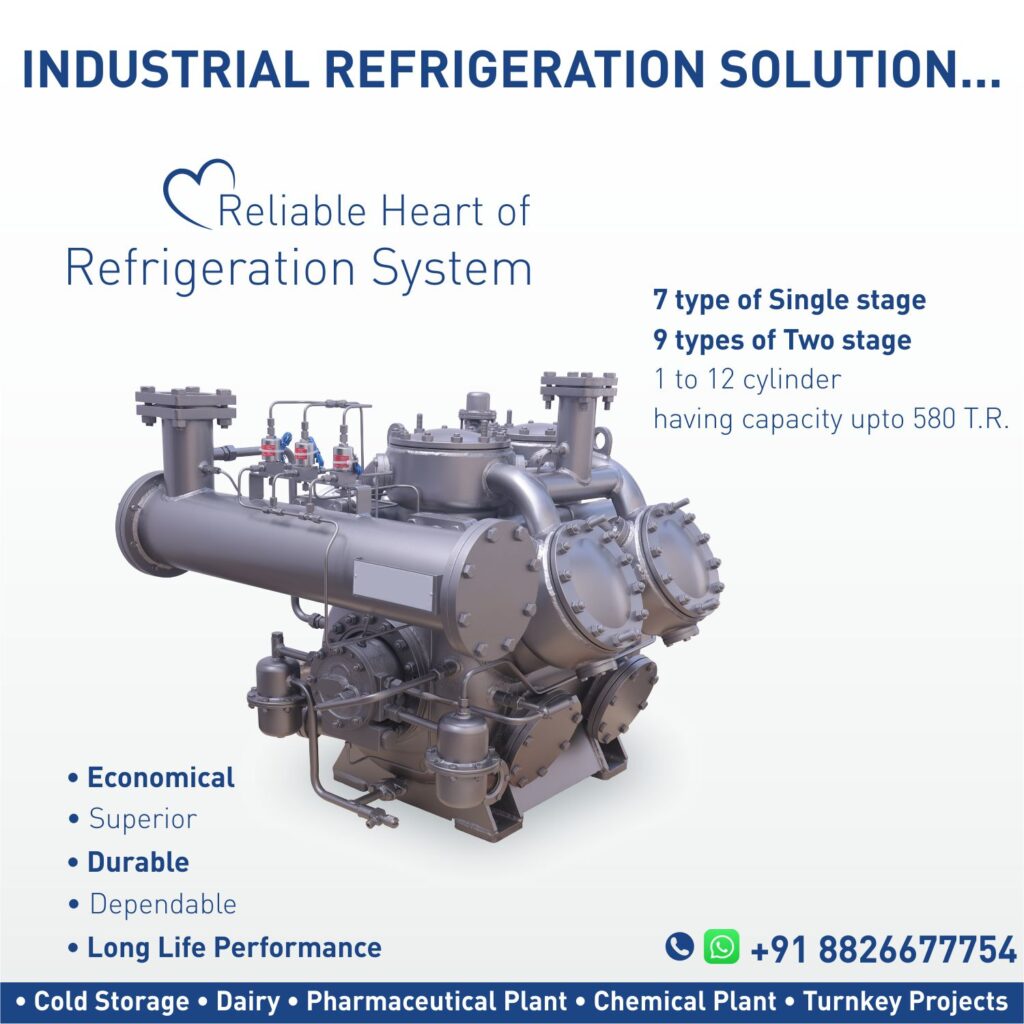
Cold storage facilities are vital in industries like agriculture, dairy, pharmaceuticals, and food processing, ensuring that perishable products remain fresh, safe, and maintain their quality. One of the most critical elements in the design of an effective cold storage system is choosing the right NH3 compressor. The NH3 compressor is the reliable heart of refrigeration system, directly impacting its efficiency, performance, and overall cost-effectiveness. In this detailed guide, we’ll dive into the importance of selecting the right NH3 compressor for cold storage, the various types available, key benefits, potential pitfalls, and expert advice to help you make an informed decision.
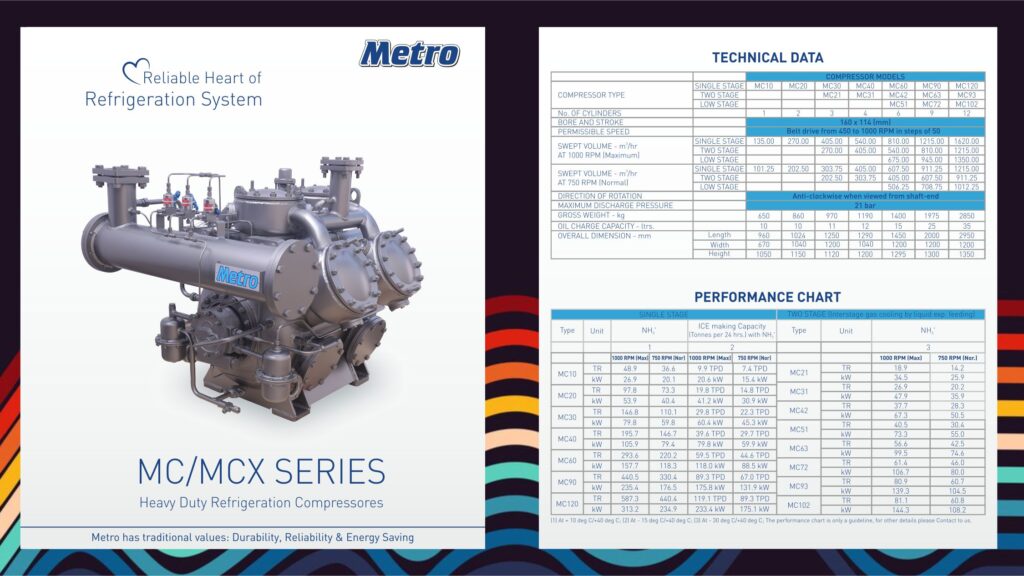
Understanding Cold Storage and Its Requirements
Why the Single Stage NH3 Compressor, Two Stage NH3 Compressor is Crucial in Cold Storage
- Energy Efficiency: The right NH3 compressor can significantly reduce energy consumption, making operations more cost-effective.
- Capacity and Temperature Control: NH3 compressors directly influence how quickly and precisely temperatures can be controlled within the storage space.
- Operational Reliability: A well-suited NH3 compressor ensures minimal downtime and maintenance, reducing the risk of spoiled inventory due to equipment failure.
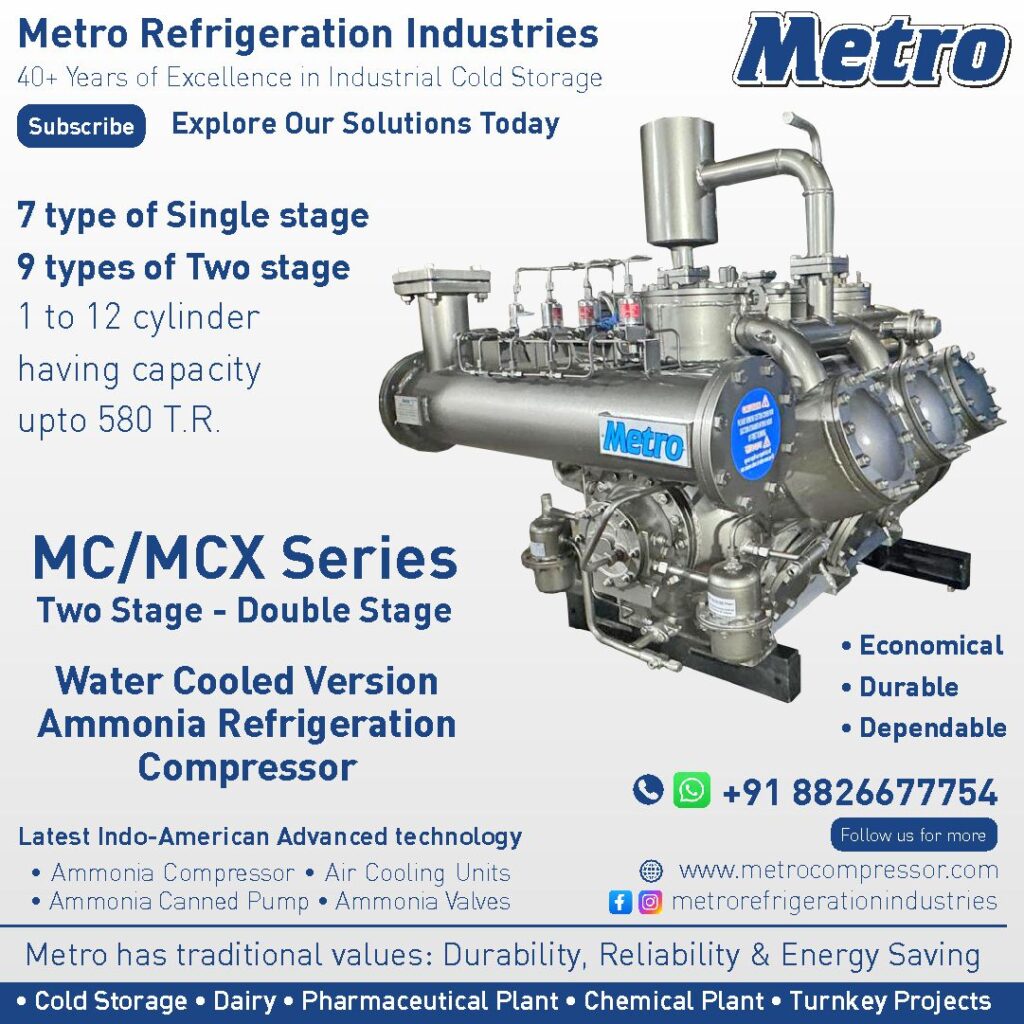
Types of Single Stage NH3 Compressor, Double Stage NH3 Compressors for Cold Storage
Single Stage NH3 Compressors, Two Stage NH3 Compressors:
- How They Work: These compressors use a piston-driven mechanism to compress refrigerant gas.
- Best For: Small to medium-sized cold storage facilities.
- Benefits: High cooling capacity, good energy efficiency at lower capacities, and can handle fluctuating cooling loads.
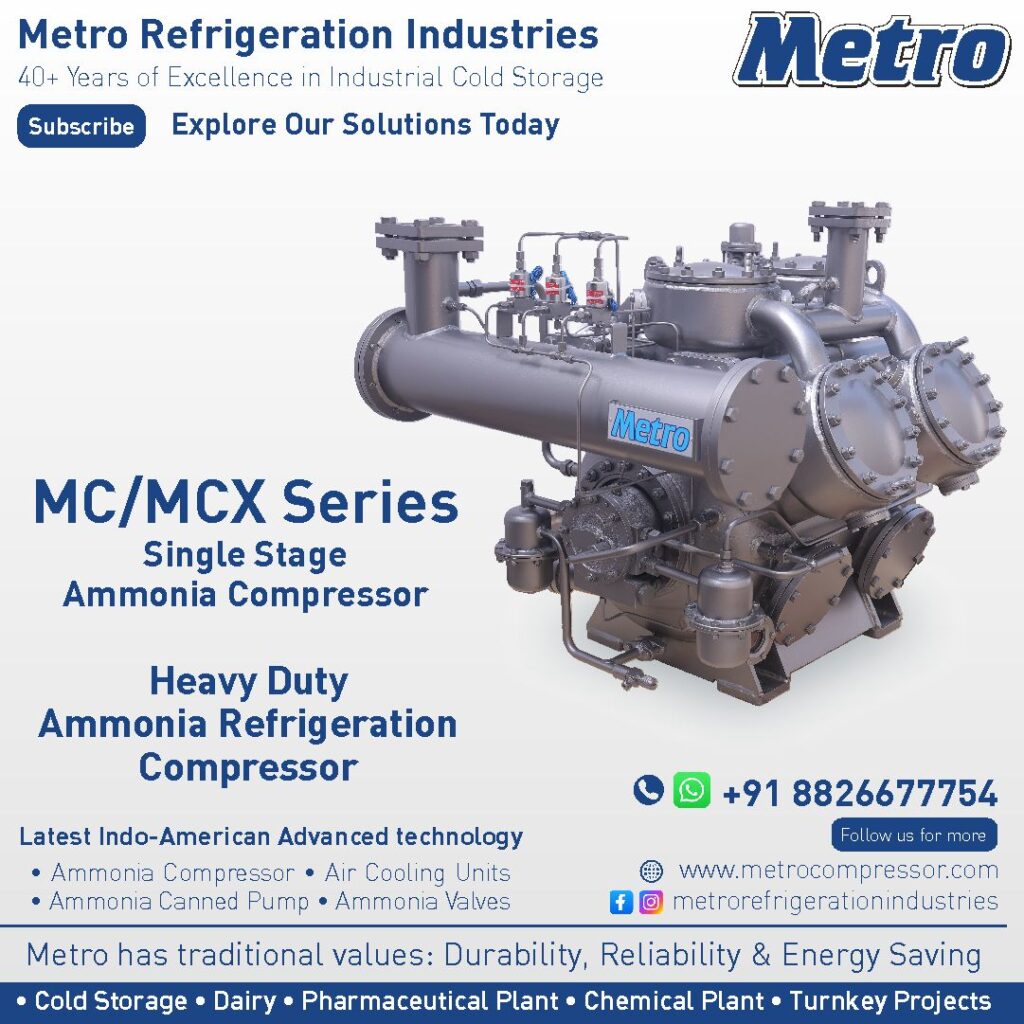
Screw Compressor:
- How They Work: They use two interlocking screws to ammonia compress the refrigerant.
- Best For: Large cold storage facilities and applications that require continuous cooling.
- Benefits: High efficiency, low maintenance, and suitable for larger refrigeration loads.
- Drawbacks: Higher upfront cost compared to NH3 compressors and can be less efficient at partial loads.
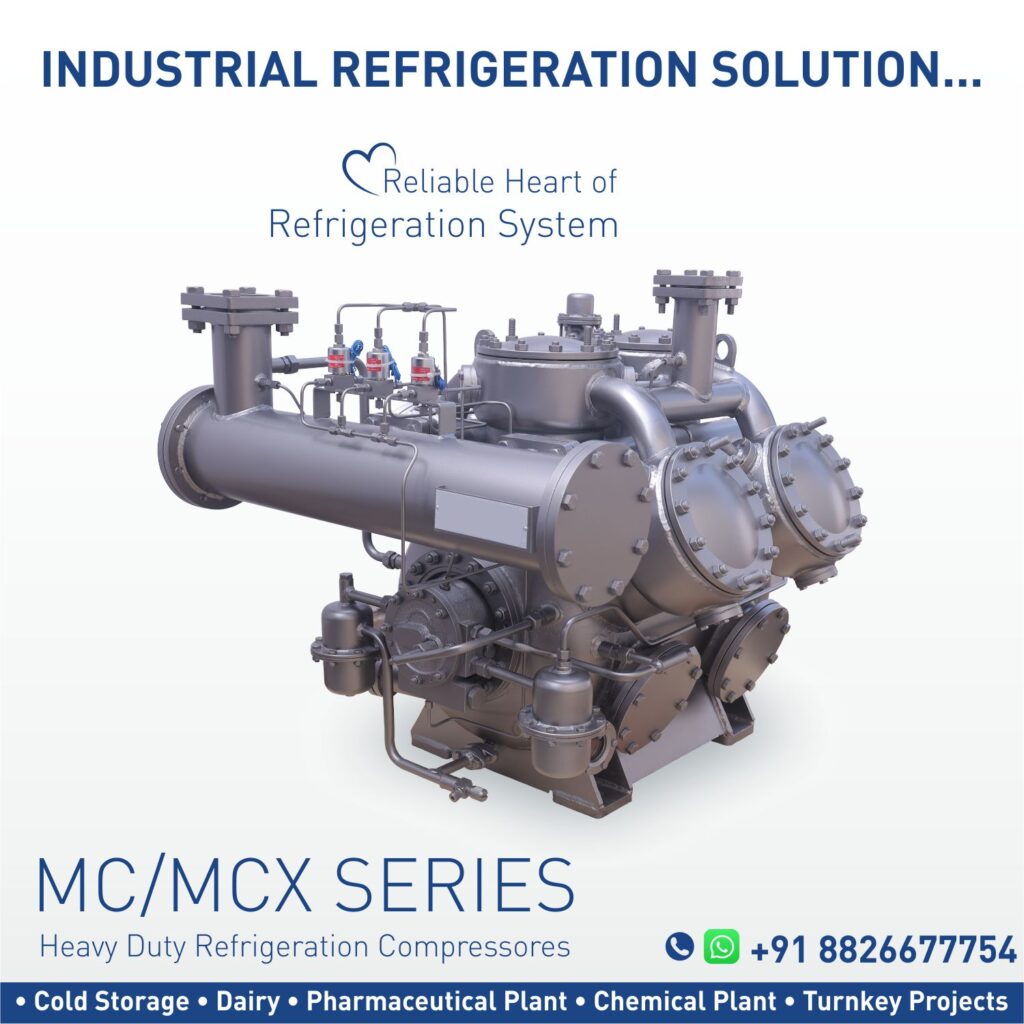
Scroll Compressor:
- How They Work: These compressors use two spiral elements (one fixed, one moving) to compress the refrigerant.
- Best For: Medium to large cold storage facilities.
- Benefits: Low noise and vibration, higher energy efficiency, and lower maintenance requirements.
- Drawbacks: Not suitable for very large cooling capacities.
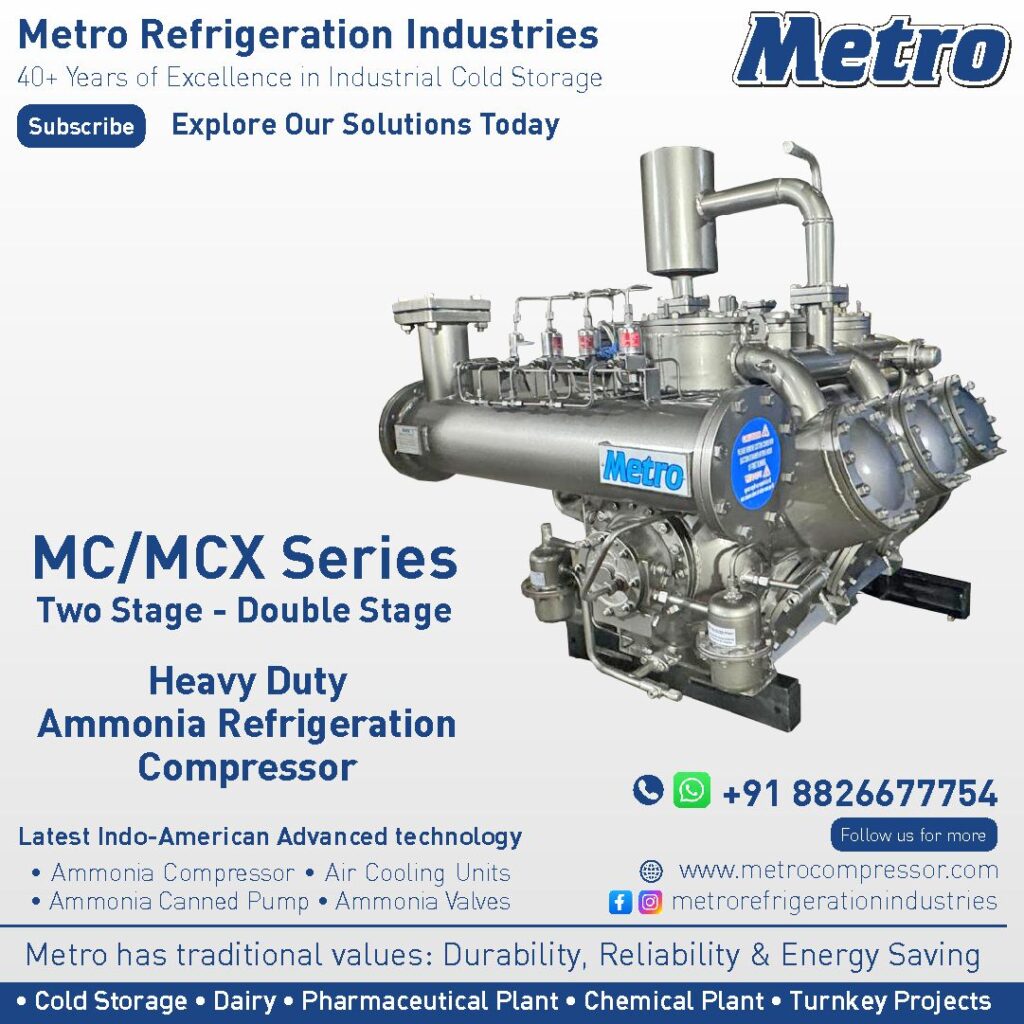
Centrifugal Compressor:
- How They Work: They use centrifugal force to compress the refrigerant, making them ideal for very high-capacity applications.
- Best For: Large industrial refrigeration systems with stable cooling demands.
- Benefits: High energy efficiency at full loads, minimal moving parts, and low maintenance.
- Drawbacks: High initial cost and complexity, requiring skilled technicians for maintenance.
Benefits of Choosing the Right Single Stage NH3 Compressor
- Energy Savings: NH3 compressors account for a significant portion of a cold storage facility’s energy consumption. Selecting an energy-efficient compressor can lead to substantial cost savings over time.
- Optimized Temperature Control: A suitable NH3 compressor ensures precise temperature control, which is critical for maintaining the quality of stored goods, especially in industries like dairy, pharmaceuticals, and frozen foods.
- Extended Equipment Life: NH3 Compressors that match the cooling needs of your facility reduce the strain on the system, resulting in less wear and tear and extending the overall lifespan of your refrigeration equipment.
- Lower Maintenance Costs: A well-suited NH3 compressor can minimize the frequency of breakdowns and reduce maintenance needs, ensuring smooth operation without unexpected interruptions.
Potential Pitfalls of Choosing the Wrong Compressor
- Increased Energy Costs: An oversized or undersized NH3 compressor can lead to inefficient operation, driving up energy consumption and resulting in higher utility bills.
- Inconsistent Cooling: The wrong type of NH3 compressor may struggle to maintain consistent temperatures, leading to product spoilage and compromised quality, which can result in financial losses.
- High Maintenance Needs: NH3 compressors that are not well-suited for the specific cooling load may experience frequent breakdowns, requiring more maintenance and increasing operational costs.
- Shortened Equipment Life: Using a NH3 compressor that is mismatched for your facility’s needs can cause excessive wear and tear, reducing the overall lifespan of the refrigeration system and leading to premature replacement costs.
Key Considerations for Choosing the Single Stage Ammonia Compressor
- Cooling Capacity Needs: Evaluate the total cooling load of your cold storage facility. Larger facilities or those with variable cooling needs may benefit from screw compressors, while smaller ones might find NH3 compressors more suitable.
- Energy Efficiency Ratings: Look for compressors with high Coefficient of Performance (COP) and Energy Efficiency Ratio (EER) ratings. This will ensure long-term savings on electricity bills.
- Initial Investment vs. Long-term Savings: While certain NH3 compressors like screw and centrifugal models may have a higher upfront cost, their lower maintenance and energy consumption can lead to better returns in the long run.
- Operating Conditions: Consider factors like ambient temperature, frequency of usage, and the specific requirements of the stored products when choosing a NH3 compressor type.
Complete Product Line
Our advanced product line includes:

Ammonia Compressor: Backbone of Industrial Ammonia Refrigeration System
Our Nh3 refrigeration compressor are designed to deliver unmatched performance, ensuring reliability and efficiency across a wide range of applications. The range includes:


- MC Series (Water Cooled Nh3 Compressor): Ideal for industries requiring consistent cooling under extreme conditions.
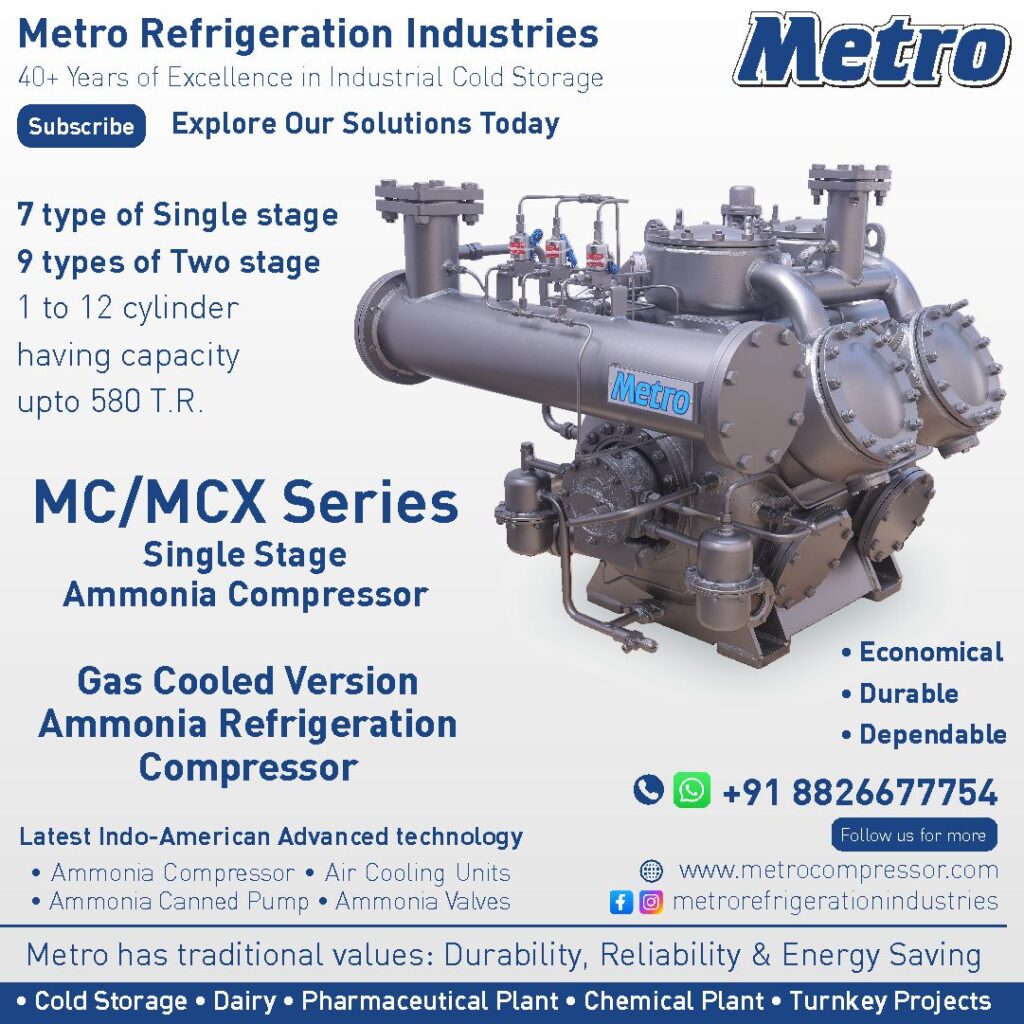
- MCX Series (Gas Cooled Nh3 Compressor): Designed for energy-efficient operation in diverse environments.
Comprehensive Range of Nh3 Compressor

- Single Stage Ammonia Compressor: Available in 7 types, featuring 1 to 12 cylinders with capacities up to 580 T.R. These refrigeration compressor are perfect for moderate refrigeration requirements.

- Two Stage Ammonia Compressor (Compound Version): Available in 9 types, featuring 1 to 12 cylinders with capacities up to 580 T.R. Engineered for applications requiring precise temperature control at low and ultra-low temperatures.
Additional Equipment and Solutions
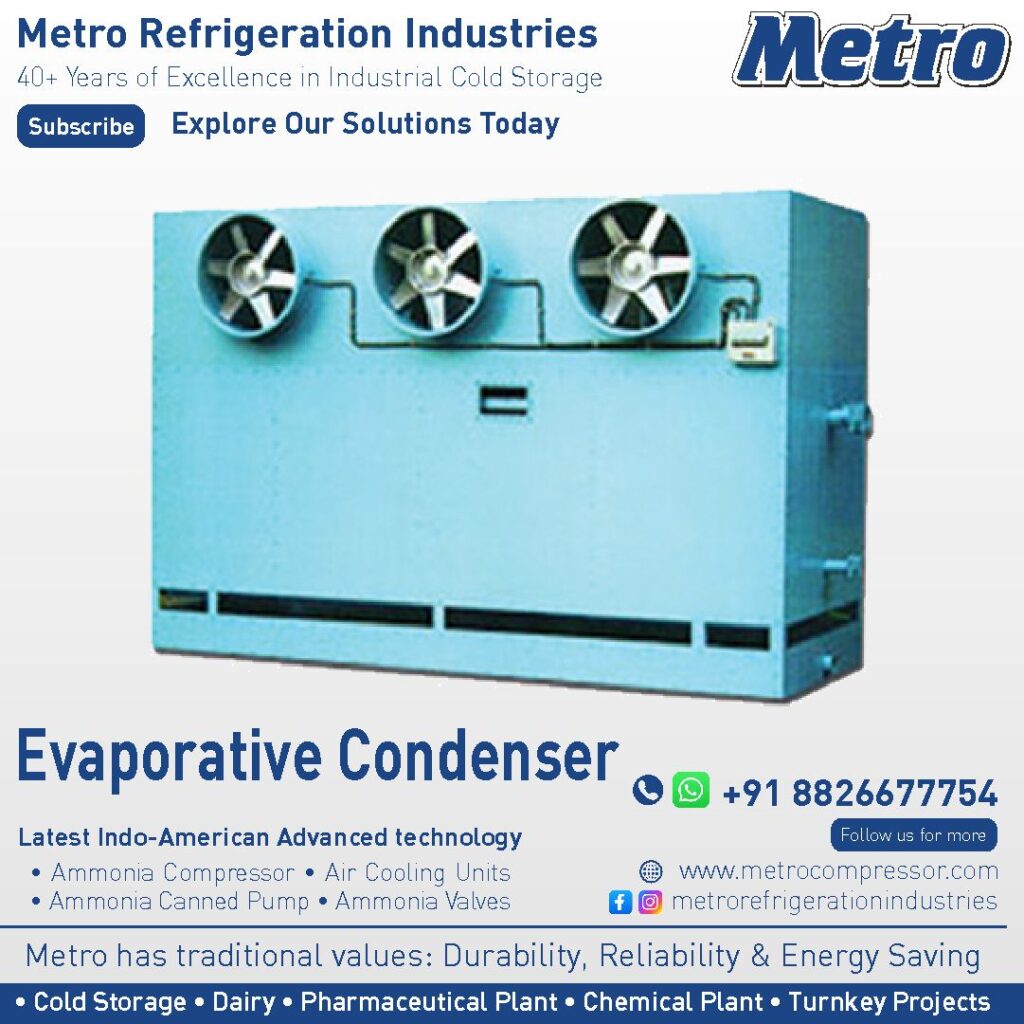
- Evaporative Condenser: Engineered for maximum heat transfer and reduced energy consumption in refrigeration systems.
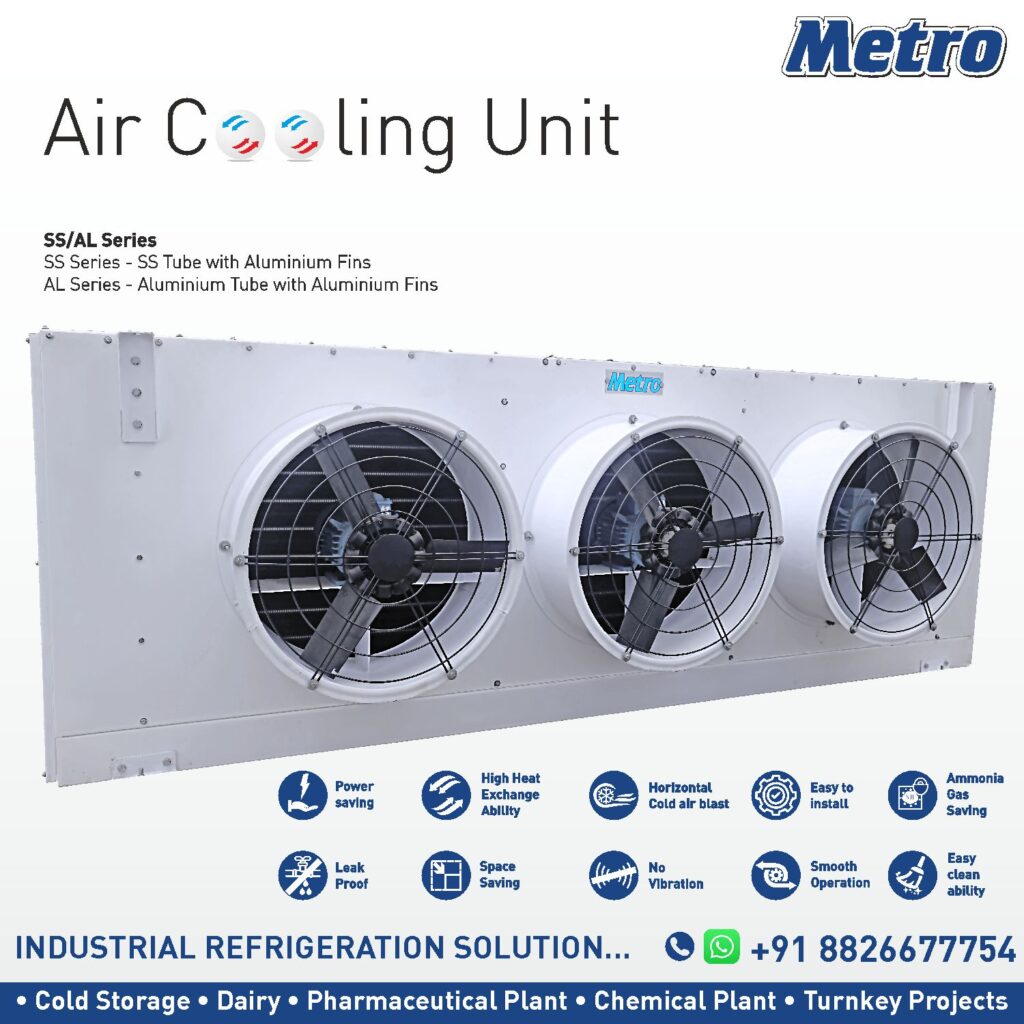
- Air Cooling Units: SS and AL Series durable and efficient cooling solutions, including stainless steel and aluminum options.
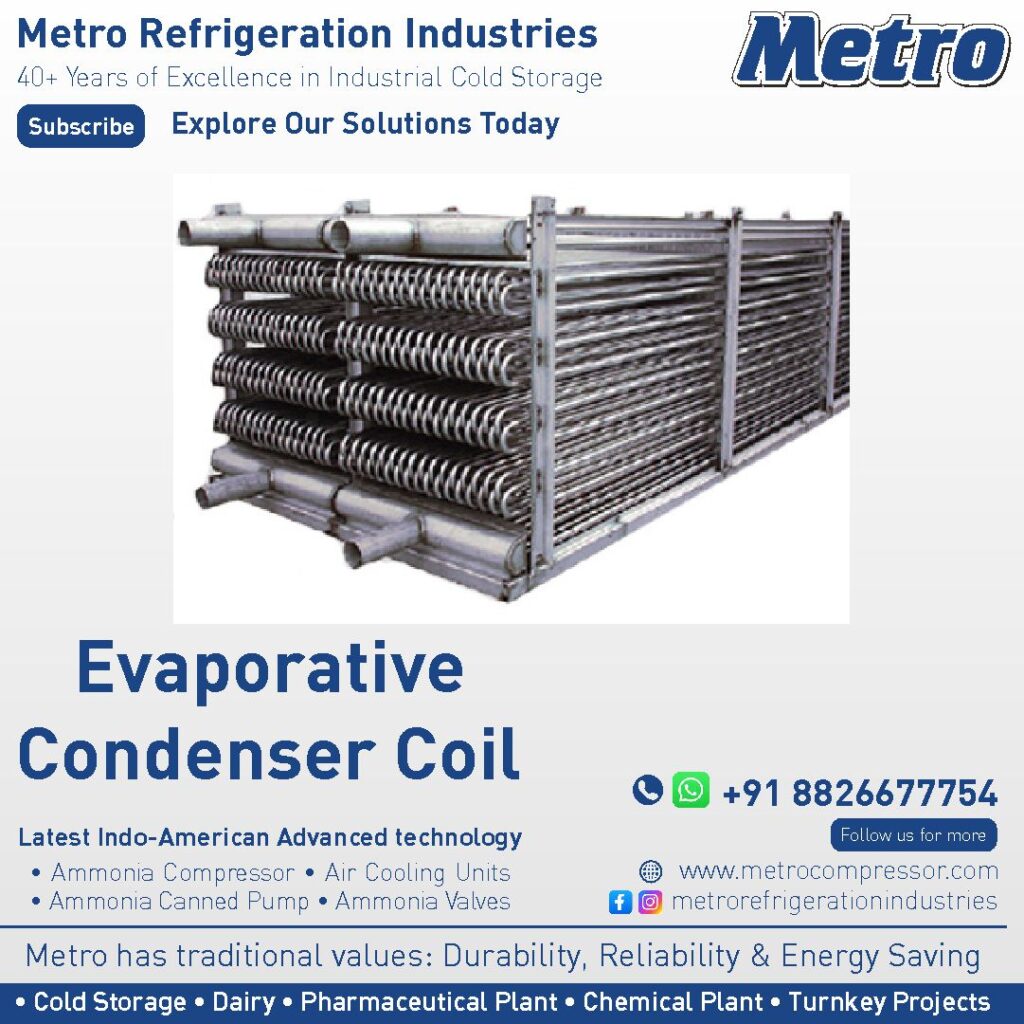
- Evaporator Coils: Ensure consistent cooling performance with our advanced ammonia evaporator coils.
- Ammonia Evaporative Coolers: Energy-saving Nh3 cooling systems for industrial applications.
- Cooling Coil Units: Maintain temperature precision with our high-performance cooling coil units.
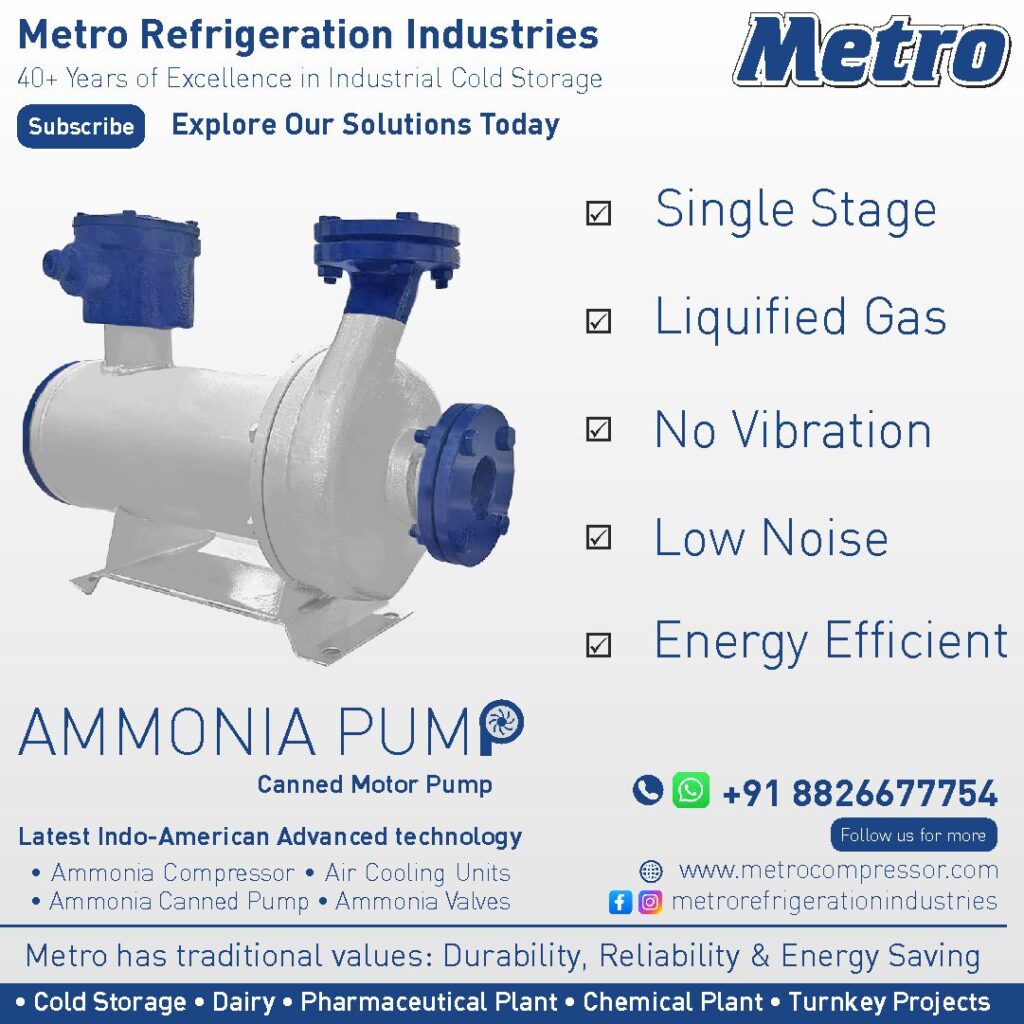
- Ammonia Canned Pumps: Built for reliable ammonia transfer in industrial refrigeration systems.
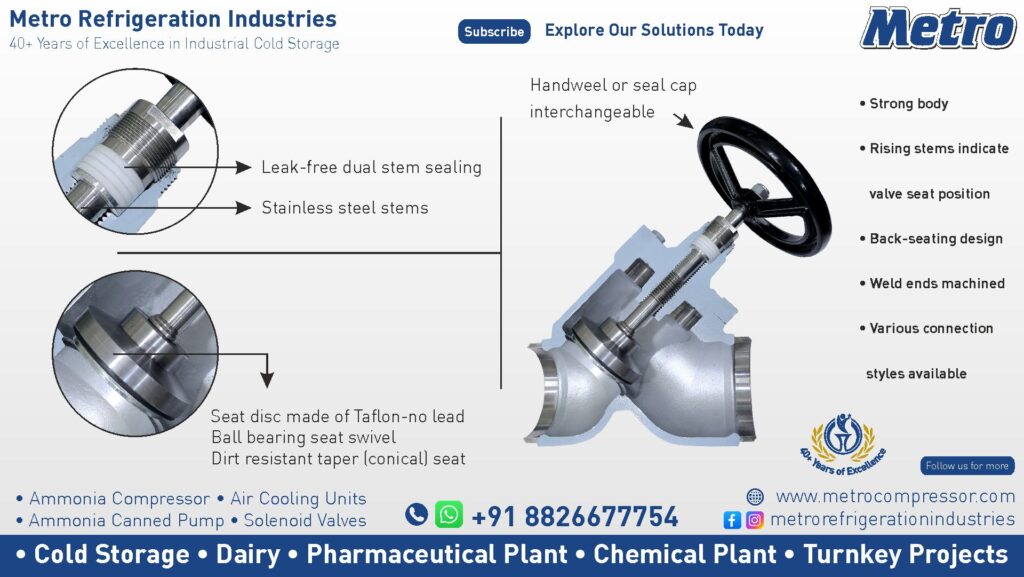
- Ammonia Valves: Precision-engineered valves for safe and efficient ammonia flow control.
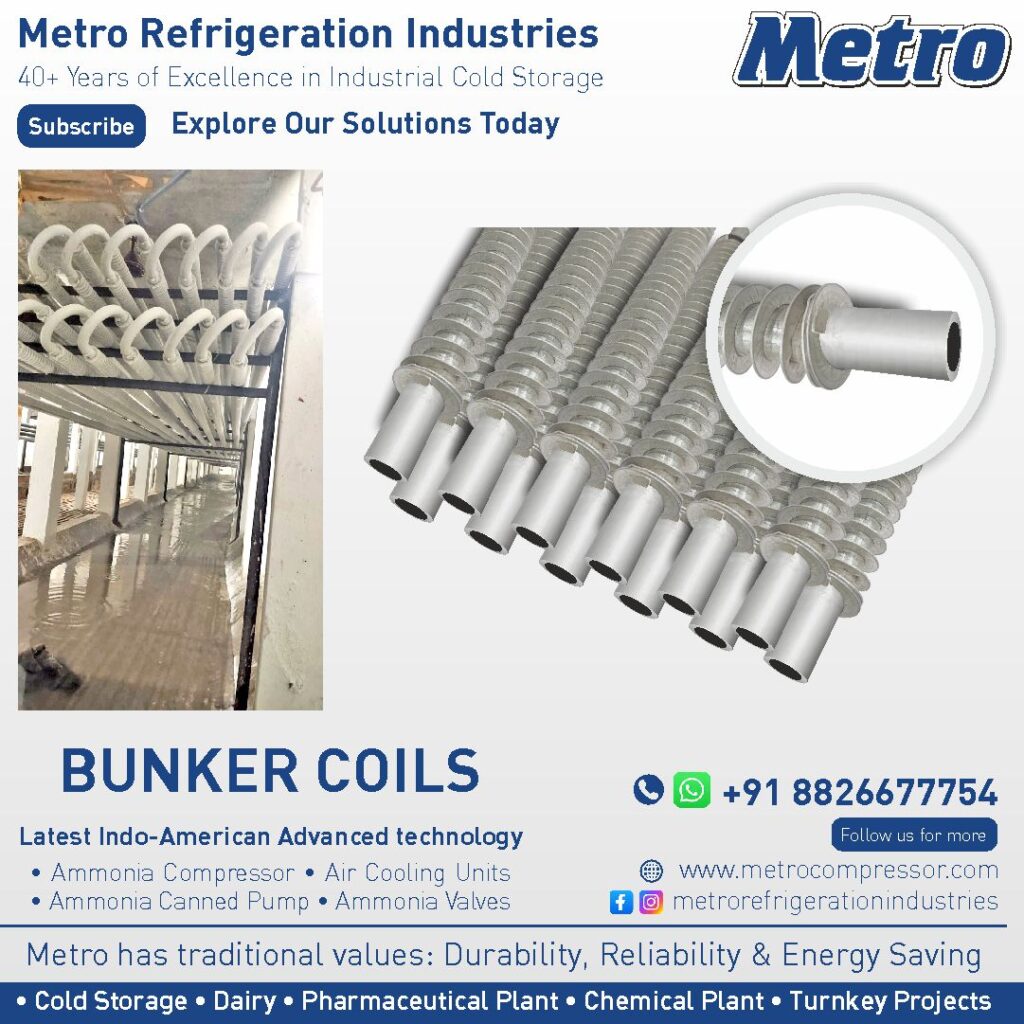
- Bunker Coils: High-efficiency heat transfer coils for industrial refrigeration processes.
- LPR & HPR: Optimize refrigeration system performance with low pressure receivers and high pressure receivers.
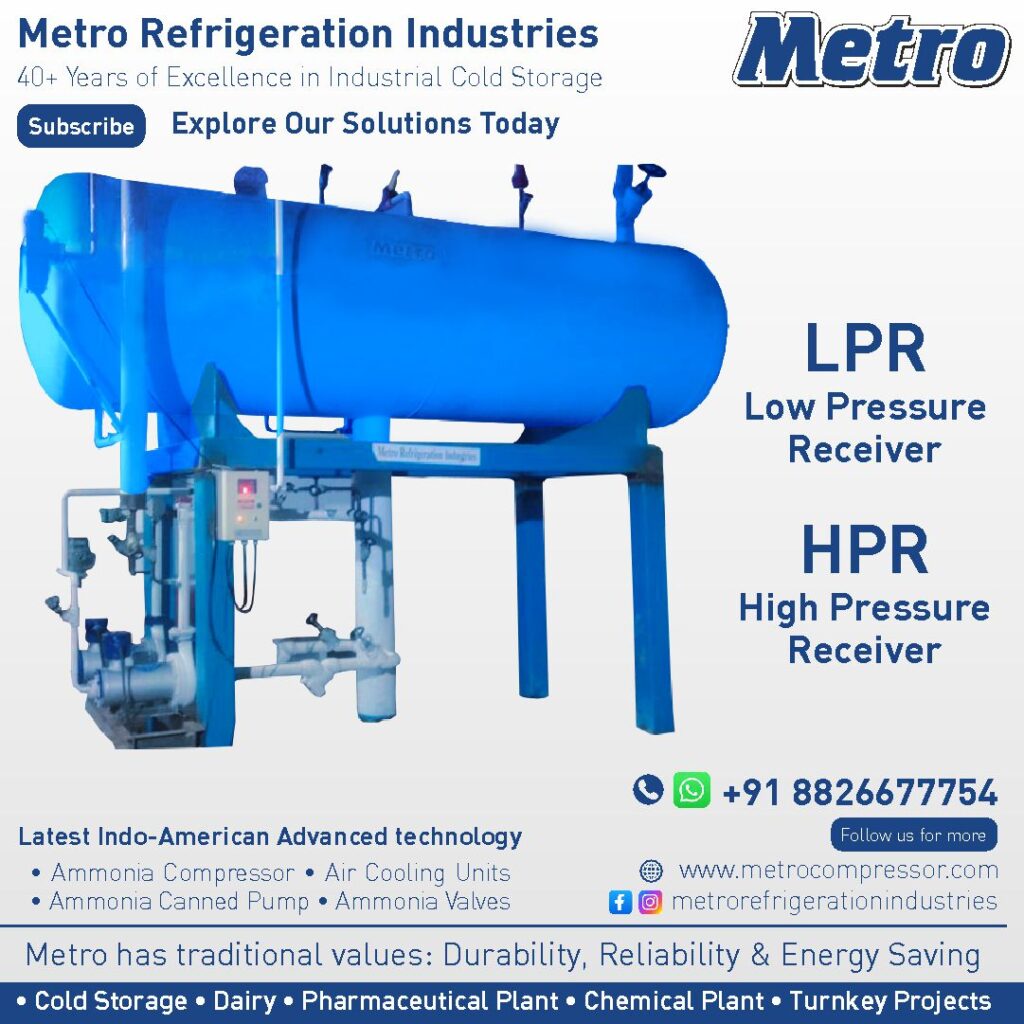
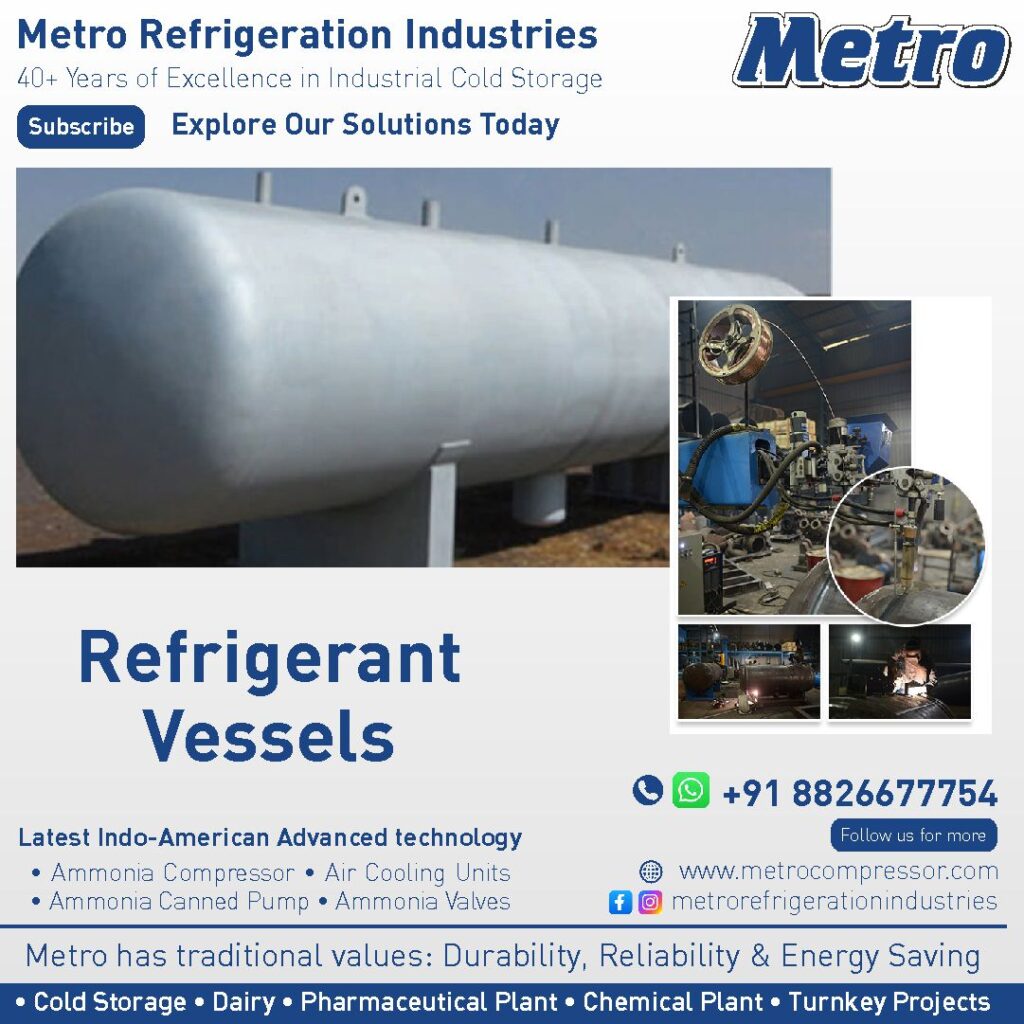
- Refrigerant Vessels: Secure and efficient refrigerant storage solutions for industrial use.
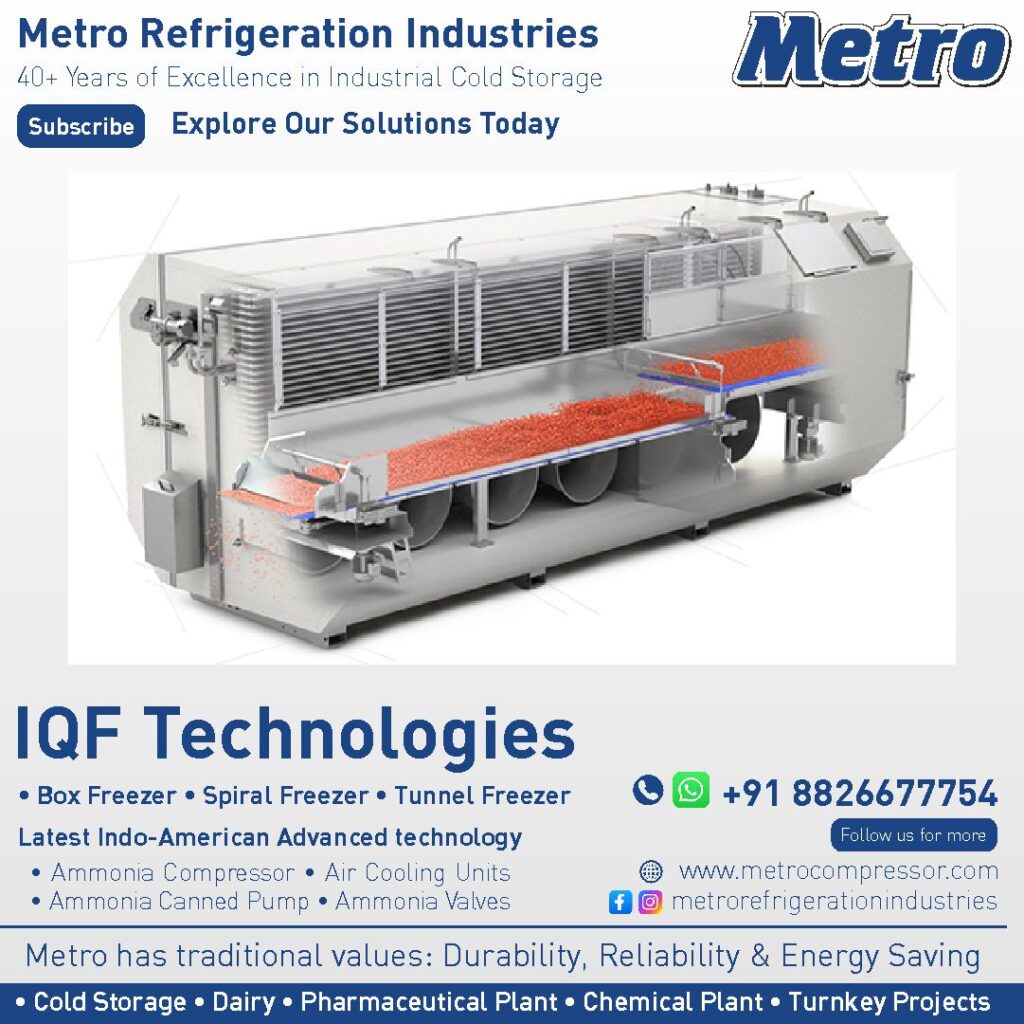
- IQF Technology: Advanced freezing technology to preserve food quality and extend shelf life.
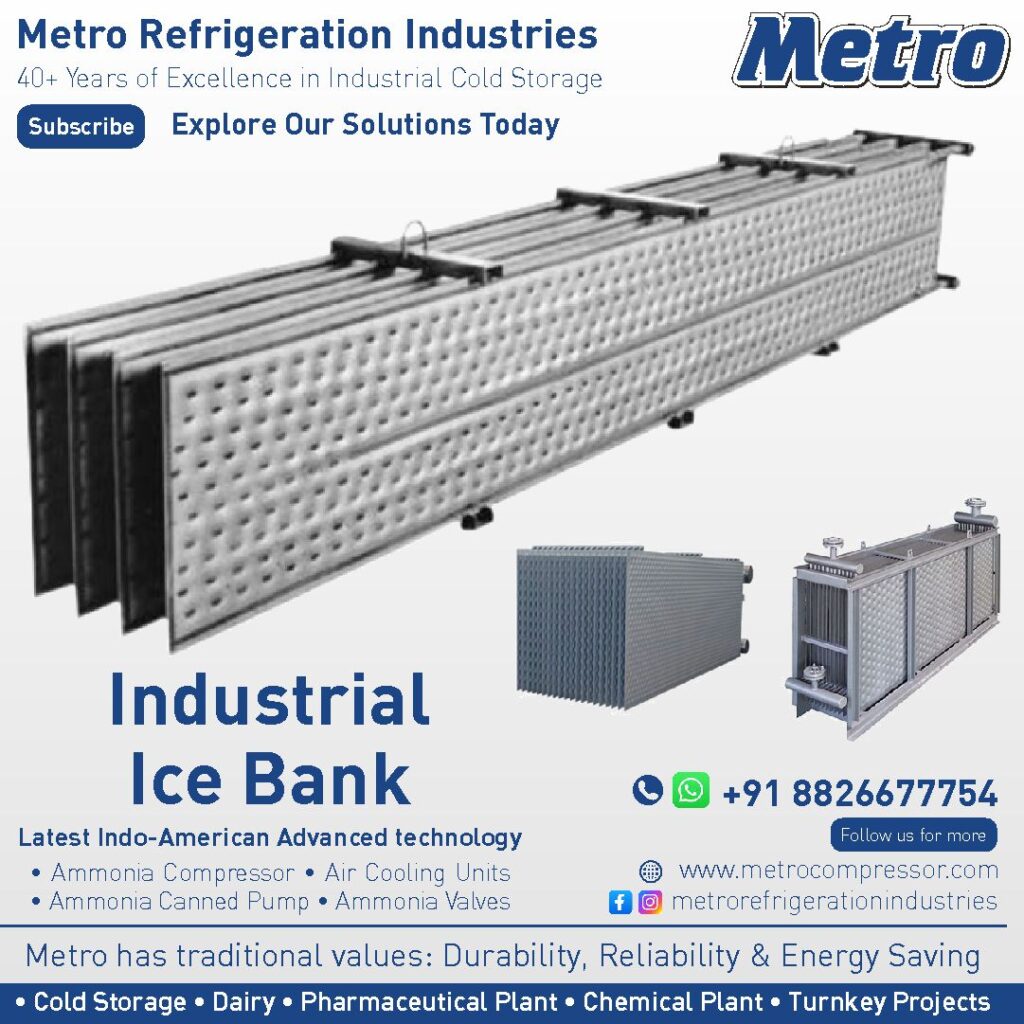
- Industrial Ice Bank: Dependable ice storage systems for industrial cooling needs.
- Pillow Plates: Effective heat exchange solutions for refrigeration and industrial applications.
- Axial Fans: Improve airflow and cooling performance with durable axial fans.
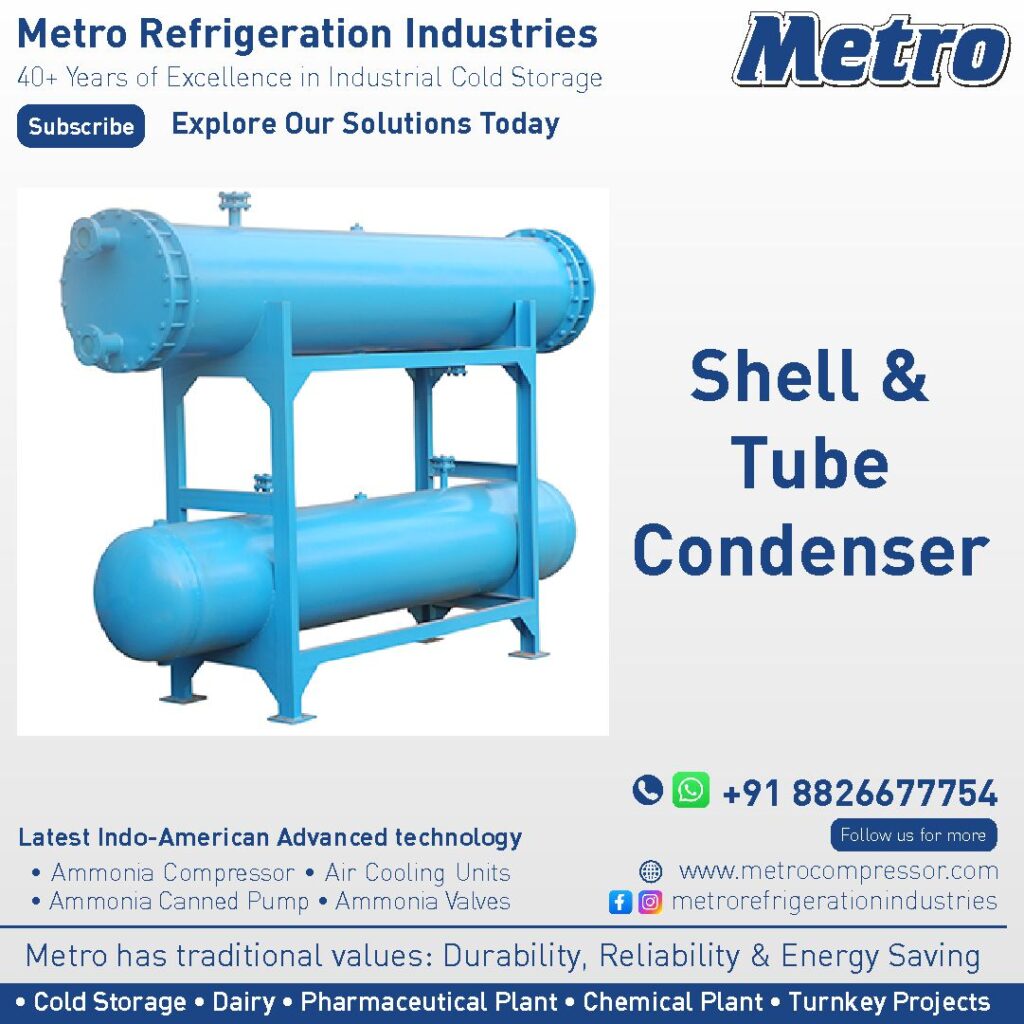
- Shell & Tube Condensers: Robust condensers designed for high-capacity industrial refrigeration.
- Ammonia Compressor Components: Ensure optimal operation with precision-engineered ammonia refrigeration compressor components.
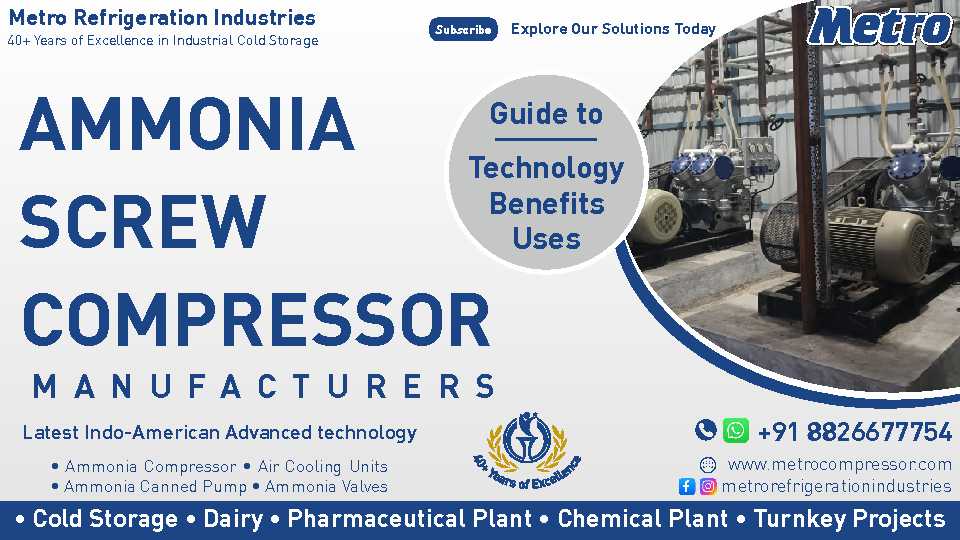
- Brine Chillers: Discover high performance ammonia brine refrigeration systems from leading brine chiller manufacturers. Our brine chiller plants, brine cooling systems, and brine refrigeration solutions ensure energy efficient industrial cooling. We also specialize in ammonia screw compressors and shell & tube condensers, delivering cost effective and reliable cooling solutions for various industries.
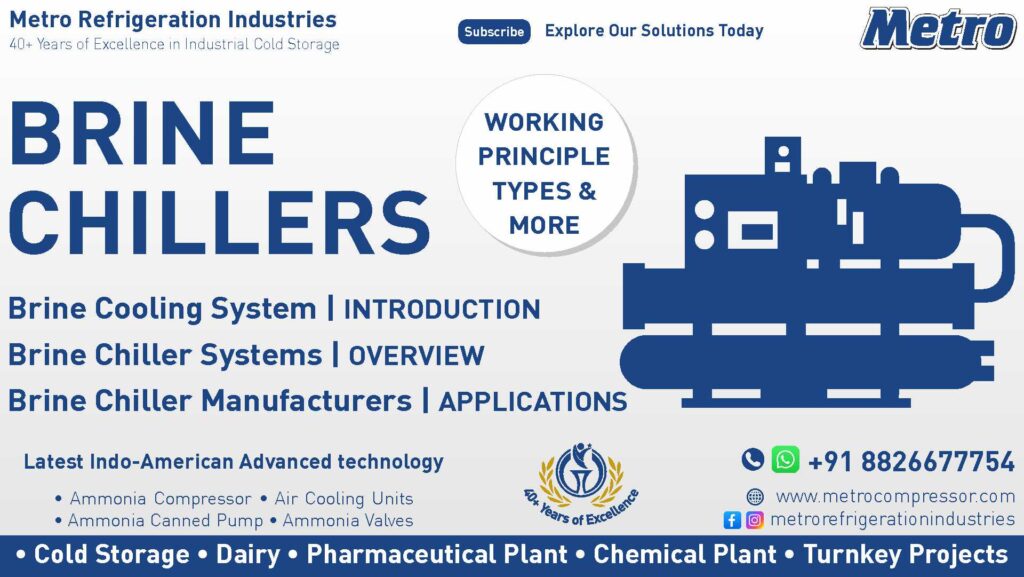
-
- Ammonia Compressor Components: Ensure optimal operation with precision-engineered ammonia refrigeration compressor components.
Making the Right Choice for Long-term Success
Choosing the right NH3 compressor for your cold storage facility is a critical decision that can significantly impact your operational efficiency and profitability. By understanding the different types of NH3 compressors and evaluating your specific needs, you can select a system that provides consistent cooling, reduces energy consumption, and minimizes maintenance costs.
At Metro Refrigeration Industries, we specialize in designing and implementing custom cold storage solutions using advanced Indo-American technology. Our team of experts is here to help you find the perfect compressor for your facility, ensuring maximum efficiency and long-term savings. Contact us today for a free consultation and let us help you optimize your cold storage operations.
Reach out to us now for a free quote and start your journey towards efficient, high-performance refrigeration!
Contact Metro Refrigeration Industries
To explore our products and solutions for your cold storage unit, get in touch:
Location: D-35, Meerut Road Industrial Area, Ghaziabad, Uttar Pradesh – 201 003, INDIA
Email: sales@metrorpl.com
Phone: +91-120-2712176, 2752030, 2757568, 2757269, 2713759
Customer Care: +91 88266 77754
Website: www.metrocompressor.com
Explore more related blogs:
Meat Processing Plant
We specialize in manufacturing cutting-edge refrigeration solutions for meat processing plants, catering to beef, chicken, cattle, seafood, fish, prawns, crabs, and frozen chicken. Our advanced systems ensure precise temperature control, freshness, and quality preservation. Trusted by industries for energy efficiency and durability, we provide comprehensive solutions tailored to meet diverse processing needs.
Screw Compressor Ammonia Refrigeration
Onion Cold Storage
Ice Bank Refrigeration System
Air Cooling Units
Ice Bank Tank
Ammonia Screw Compressor
Cold Storage Business Guide
Ammonia Refrigeration System
CA Cold Storage
Controlled Atmosphere Cold Storage
Apple Cold Storage
Ammonia Screw Compressors
CA Cold Storage Chambers
IQF Technology
Ice Bank Chiller System
Individual Quick Frozen Technology
Blast Freezers
Blast Chillers
Curd Blast Rooms
Curd Incubation Room
Curd Incubation Chamber
Dairy Processing Plant

17 thoughts on “Ammonia Compressor, working principle, functions, types, uses & efficiency”